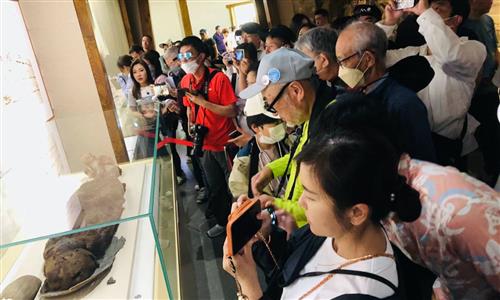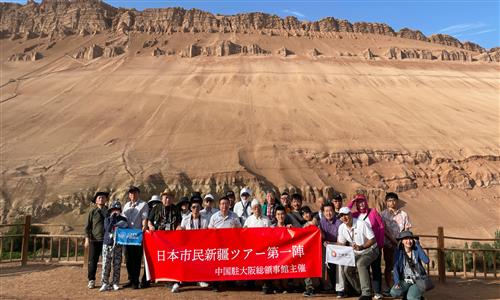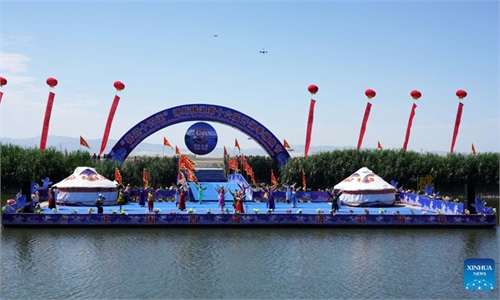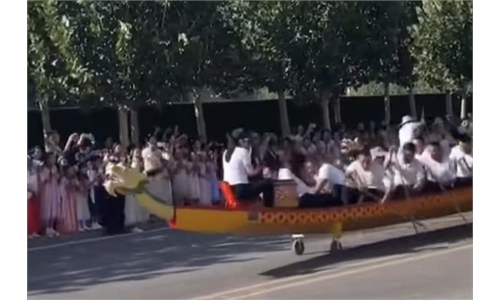First post-COVID Japanese tour group completes visit to Xinjiang; frequent interactions with locals along the journey dispel rumors
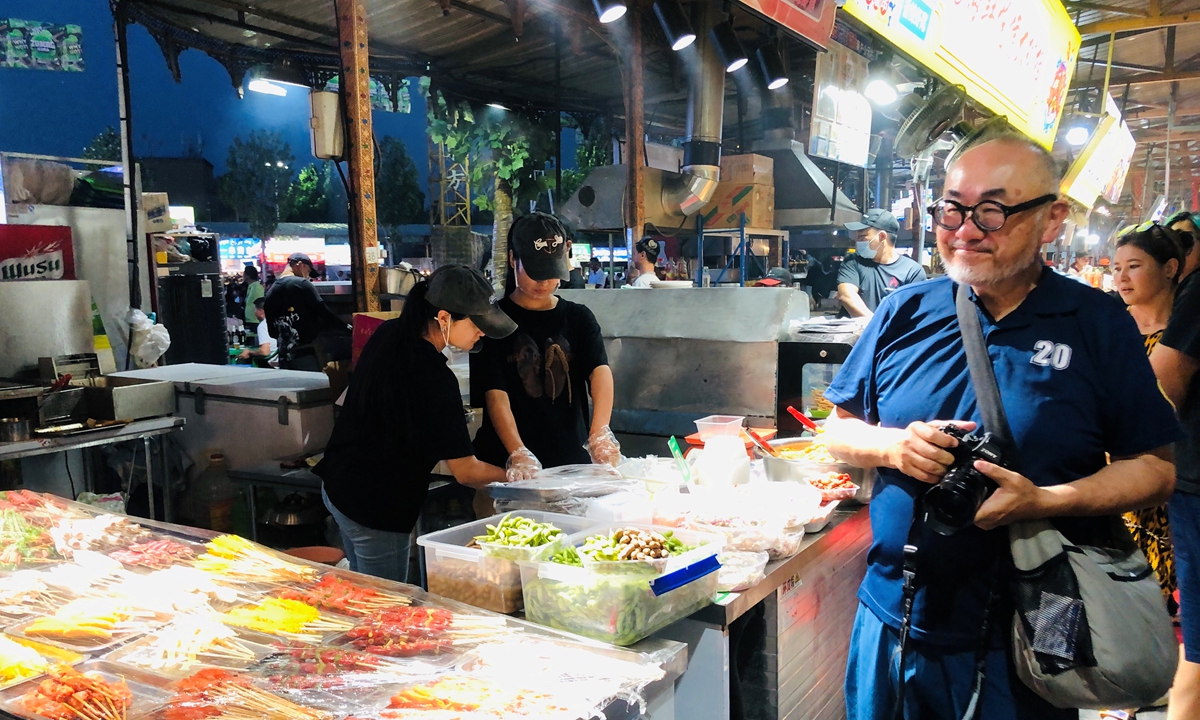
Mr Sonoyama, a member of the Japanese tour group, visits a night market in Aksu of Xinjiang region. Photo: Courtesy of Guo Qiang
The first Japanese tour group to Northwest China's Xinjiang Uygur Autonomous Region after China's relaxation of COVID-19 travel restrictions completed their visit and flew back to Japan on Tuesday. The nine-day visit to the region offered the group members a fresh perspective on a region that is much different from what is depicted in some Western and Japanese media - instead of being a place of danger, it is a region of harmony and safety with local residents living peaceful and happy lives.
During their stay in the Xinjiang region since June 19, the group of 20 Japanese tourists, who flew in from Osaka, Japan, visited five cities - Urumqi, Turpan, Korla, Aksu and Kashi, enjoying the splendid landscape of the Huoyan Mountain, chatting with locals in the night fairs in almost all cities, learning the history of Muslims in the Id Kah Mosque in Kashi and that of Buddhism in the Kizil Cave-Temple Complex in Aksu, and dancing with students in a primary school in Kashi.
Many members of the group told the Global Times that this visit has upturned their previous knowledge about the region, and they would like to share their fresh understanding of the region with more people in Japan.
Yuki Kawasaki and his father were members of the tour group. He told the Global Times that this is his first visit to the Xinjiang region, about which he knew very little previously. During this visit, he began to know that many ethnic groups live together in the region and "they unite together like the pomegranate seed."
Information on China's Xinjiang is limited in Japan. News on the region always focused on politics and many Japanese thought the region is dangerous, said Kawasaki, noting that after returning to Japan, he will introduce the diversity of ethnic groups, culture and food of the Xinjiang region as well as the real security situation to more Japanese.
Many members of the tour group expressed their surprise at finding the Xinjiang region to be such a peaceful place.
Takahiro Sonoyama and his wife Keiko Sonayama liked to visit night markets in almost every city along the journey. While roaming around, there were children who were curious about seeing foreigners coming to talk to them and some locals asked them to take photos together.
Mr Sonoyama wrote about their experience in a night market in Urumqi in a post on his twitter account, saying that they walked back to the hotel from a night market near the Erdaoqiao Road in Urumqi after it closed around 1 am. The street lamp along one section of the road was dim, but he did not feel any danger.
Like Mr Sonoyama, many members of the tour group had been reporting about their journey starting from their departure from Osaka on their twitter accounts by posting pictures and videos of what they have seen along the tour.
Yumi Watabe, 33, a ski coach from Hakuba in Japan, began to record her trip on her twitter account by continuously posting videos and photos of various fruits, roasted lamb, the Huoyan Mountain in Turpan and the corpse of Loulan Beauty, who is said to have been buried in the desert thousands of years ago, displayed at the regional museum.
The delicious food and splendid landscapes have attracted many netizens, though some of them called Watabe's posts as "propaganda" for the Chinese government. In response, Watabe said that what she is doing is sharing her own views and what she is seeing along the trip, and those netizens cannot prove her wrong with inaccurate reports on the region they have learned from the media.
Watabe said that some Japanese people have concerns about China's ethnic minority groups but they should express their opinions based on what they see with their own eyes, as the old saying goes - it is better to see for oneself rather than to hear for many times.
Before the tour group's arrival in Urumqi, the Chinese Consulate-General in Osaka Xue Jian arranged an interview with the Global Times, during which he expressed hope for the visit to become a window for the Japanese to know more about the region as some Western and Japanese media's reports on Xinjiang were contrary to the truth and were made to serve the US' strategy to contain China.
Xue also expressed hope for more people-to-people exchanges between China and Japan with more people from the two countries to become a firm force to improve bilateral relations.

